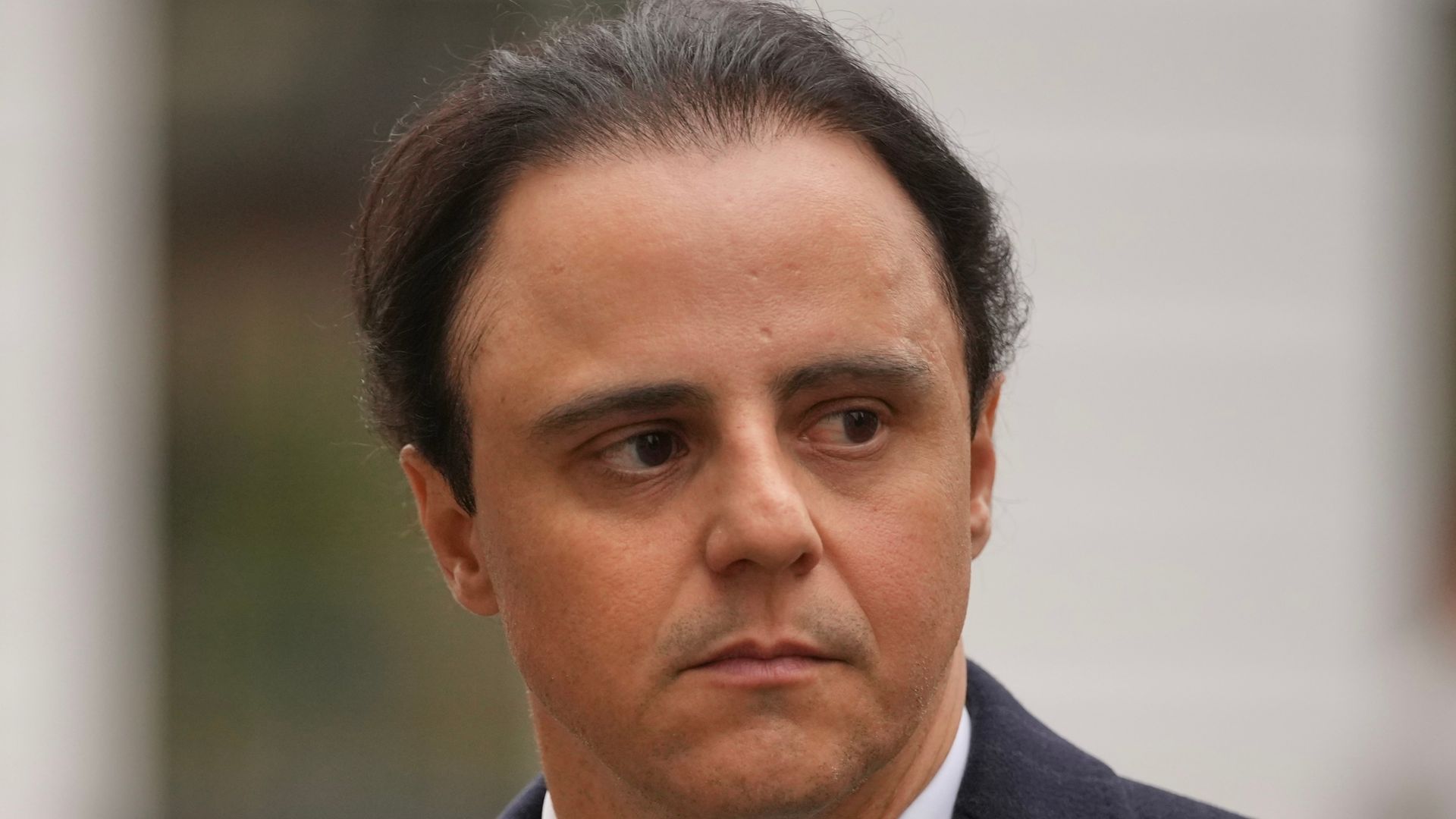Massa’s £64 Million Legal Battle: A Fight Against the Power Monopoly of Formula One’s Elite
Felipe Massa, a name synonymous with high-speed drama and heart-wrenching heartbreak in Formula 1, is reviving a legal battle that could reshape the boundaries of accountability in the sport. His claim, which demands a staggering £64 million, is not just a financial pursuit; it challenges the very essence of power dynamics within Formula One, where a handful of figures have historically dictated the fate of drivers and teams alike.
Massa’s case against former F1 chief Bernie Ecclestone, Formula One Management, and the Fédération Internationale de l’Automobile (FIA) is rooted in the controversial events of the 2008 season, a year that saw one of the most dramatic finishes in the history of the sport. Massa, driving for Ferrari, appeared destined to clinch the world title, only for the tide to turn in the final moments of the Brazilian Grand Prix. Lewis Hamilton, in a breathtaking display of skill, secured the championship by overtakingToyota’s Sebastian Vettel at the last possible moment.
To the untrained eye, the 2008 season might seem like a distant memory, a mere chapter in the grand tome of motorsport history. However, for Massa, who was leading the championship until the very end and then lost due to circumstances shrouded in controversy, the feelings of injustice have lingered like the odor of burnt rubber on an asphalt racetrack. The nature of his claim stems from allegations concerning the legality of Hamilton’s championship win, claiming the FIA’s decisions were compromised, rendering the title illegitimate.
This legal pursuit also taps into the broader themes of justice and accountability in sports, a topic that resonates deeply with fans and athletes alike. In recent years, numerous high-profile cases have highlighted issues of wrongdoing, corruption, and unfair practices. The world of sports has witnessed athletes, coaches, and even governing bodies being held accountable for their actions—think of the fallout from the FIFA corruption scandal or the profound revelations of doping in athletics. Massa’s claim could mark another significant chapter in this narrative, one where the sport must confront its past and address the events that have shaped its present.
Massa’s battle is not merely about reclaiming a title but is emblematic of a larger struggle for fairness within elite sports. As the world watches, the implications of this case could ripple beyond the racetracks of Formula One, prompting other athletes and stakeholders to reconsider their positions on accountability. Will sporting authorities be compelled to amend their governance structures and processes, thus ensuring fairness in championship outcomes? Or will they dig in their heels, maintaining the status quo that has long protected the interests of powerful figures within the sport?
The stakes are high, not just for Massa but for the entire Formula One community. The sport has often been criticized for a perceived lack of transparency and accountability concerning its governing bodies, and this case could act as a catalyst for substantial change. Fans, who invest their passion and resources into supporting their favorite teams and drivers, deserve confidence that integrity is at the heart of competition.
As the proceedings unfold, they will undoubtedly reignite debates around the meritocracy of competitive sports. Questions around the roles and responsibilities of governing bodies like the FIA come to the forefront. Have they acted in the best interests of the sport, or have they allowed personal relationships and profit motives to cloud their decision-making? These questions are not trivial; they delve into the very fabric of what it means to compete in a sport revered for its spirit of competition and fairness.
Furthermore, in the context of Massa’s claim, the potential financial implications cannot be overlooked. The Formula One landscape has changed dramatically since 2008, with teams investing billions in technology and infrastructure, while the sport has become increasingly commercialized. The introduction of newer regulations and the ever-escalating costs of competing have created an environment where financial disputes can have far-reaching consequences. If Massa were to succeed in his claim, it could set a precedent that might embolden other disaffected drivers or teams to pursue similar actions, fundamentally altering the dynamics of the sport.
In an era marked by a heightened sensitivity to fairness, equality, and accountability, Massa’s endeavor resonates with a wider audience. It echoes social movements that demand transparency and justice, illustrating that the issues within sports often reflect larger societal challenges. Fans are no longer passive spectators; they are advocates for change, pushing back against those who wield power unchecked.
Lastly, the implications of Massa’s claim reach into the future of Formula One. As the sport grapples with evolving technologies and the push for sustainability, it also faces the challenge of maintaining its integrity. How the courts rule on this case could serve as a turning point, potentially reshaping not only Massa’s legacy but the collective ethos of Formula One itself.
As the saga continues, one must ponder the impact of Massa’s pursuit of justice on the sport’s hallowed ground. Will it lead to a reckoning that reshapes Formula One for the better, or will it expose the fragility of its foundations? The world may be watching, but it is Massa’s determination that could drive change and inspire a new generation of athletes to stand up for their rights within the high-octane world of motorsport.




